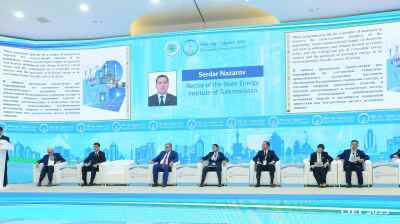UAE-based Dana Gas has emerged as the first international developer to sign a significant agreement with Syria’s new administration, a landmark move signalling a cautious reopening of the nation’s war-decimated energy sector.
The Abu Dhabi-listed firm signed a Memorandum of Understanding (MoU) with the state-run Syrian Petroleum Co. This initial pact mandates a comprehensive technical assessment of several existing gas fields in central Syria, including the significant Abu Rabah discovery, one of the country’s largest.
Should this evaluation prove positive, Dana Gas will formulate and propose a full-scale development plan. This agreement is the first of its kind since sanctions eased following the change in government and is being watched as a critical test case for foreign investment.
“The fields identified under this MoU could make a real difference to domestic gas production, strengthening Syria’s energy security and supporting local communities,” Dana Gas CEO Richard Hall said. He specifically highlighted the company’s “experience... in the Kurdistan Region of Iraq was directly transferable to such projects,” signalling confidence in navigating the complex operational and political landscape.
The deal addresses a catastrophic domestic crisis. Syria’s natural gas production, the lifeblood of its power grid, collapsed from 8.7bn cubic metres (bcm) in 2011 to an estimated 3 bcm in 2023, forcing a crippling reliance on imports.
The Dana Gas deal is the most concrete outcome to date of a deliberate strategic pivot by Syria’s new government under President Ahmed al-Sharaa. The administration is actively engineering a move away from its historic alignment with Tehran and aggressively courting Western and Gulf-based capital.
This diplomatic offensive was further evidenced by the Syrian Energy Minister’s strategic discussions with majors like TotalEnergies and Chevron at the recent ADIPEC conference, underscoring a clear intent to re-engage with global energy firms.
While the Dana Gas initiative represents a long-term domestic solution, the government is simultaneously executing a multi-lateral deal to address the immediate power deficit. In an arrangement brokered by Turkey, Azerbaijan has begun supplying natural gas via a swap agreement using Turkey’s state-run BOTAŞ transmission system.
This complex commercial deal, partially financed by Qatar, is already delivering 3.4mn cubic metres per day. Turkey’s Energy Minister, Alparslan Bayraktar, confirmed to Al Haber that this could rise to 6 mcm per day. This supply is projected to restore 10 hours of daily electricity to 5mn households.
However, formidable “above-ground” risks remain a critical concern for any potential investor. Reuters has highlighted the challenge facing parallel recovery efforts, such as UCC Holding’s $7bn power plant plan, noting that such capital-intensive projects are highly vulnerable unless Damascus can secure assets against organised looting – a crucial hurdle for all future investment.
Press release

Aramco reportedly pauses Safaniya onshore tender
Saudi Aramco is reported to have extended the bid deadline for its Safaniya onshore oilfield development project, according to industry publications

CIET 2025 — Smart construction. Clean energy. Resilient future.
The Awaza National Tourist Zone on the shores of the Caspian Sea is set to welcome delegates and industry leaders to the International Conference & EXPO “Development of the Construction, Industrial, Chemical and Energy Sectors of Turkmenistan”.



